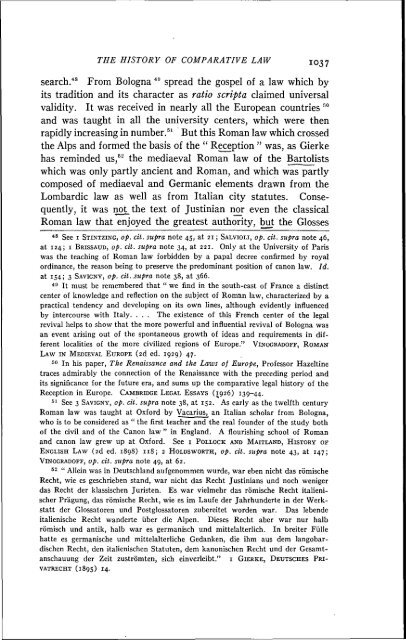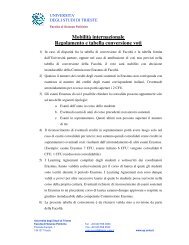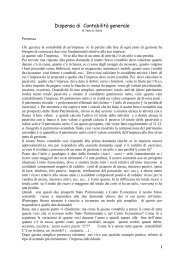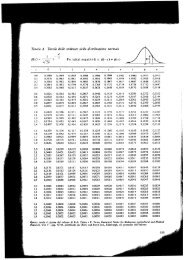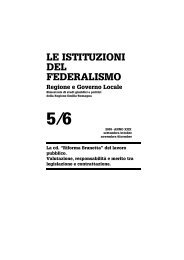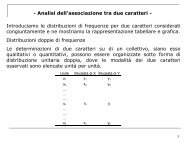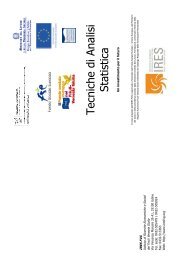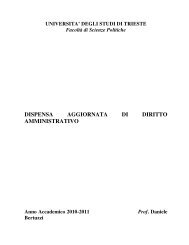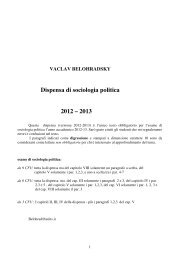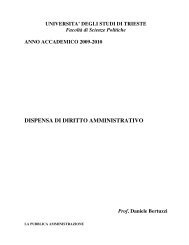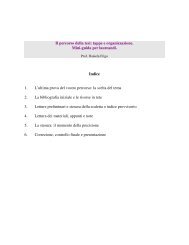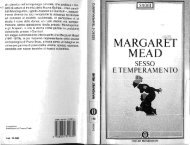THE HISTORY OF COMPARATIVE LAW * ^COMPARATIVE law, as ...
THE HISTORY OF COMPARATIVE LAW * ^COMPARATIVE law, as ...
THE HISTORY OF COMPARATIVE LAW * ^COMPARATIVE law, as ...
Create successful ePaper yourself
Turn your PDF publications into a flip-book with our unique Google optimized e-Paper software.
<strong>THE</strong> <strong>HISTORY</strong> <strong>OF</strong> <strong>COMPARATIVE</strong> <strong>LAW</strong> 1037<br />
From Bologna ••" spread the gospel of a <strong>law</strong> which by<br />
its tradition and its character <strong>as</strong> ratio scripta claimed universal<br />
validity. It w<strong>as</strong> received in nearly all the European countries "°<br />
and w<strong>as</strong> taught in all the university centers, which were then<br />
rapidly incre<strong>as</strong>ing in number.'''^ But this Roman <strong>law</strong> which crossed<br />
the Alps and formed the b<strong>as</strong>is of the " Reception " w<strong>as</strong>, <strong>as</strong> Gierke<br />
h<strong>as</strong> reminded us,°^ the mediaeval Roman <strong>law</strong> of the Bartolists<br />
which w<strong>as</strong> only partly ancient and Roman, and which w<strong>as</strong> partly<br />
composed of mediaeval and Germanic elements drawn from the<br />
Lombardic <strong>law</strong> <strong>as</strong> well <strong>as</strong> from Italian city statutes. Consequently,<br />
it w<strong>as</strong> not the text of Justinian nor even the cl<strong>as</strong>sical<br />
Roman <strong>law</strong> that enjoyed the greatest authority, but the Glosses<br />
*5 See I STINTZING, op. cil. supra note 45, at 21; SALVIOLI, op. cit. supra note 46,<br />
at 124; I BRISSAUD, op. cit. supra note 34, at 221. Only at the University of Paris<br />
w<strong>as</strong> the teaching of Roman <strong>law</strong> forbidden by a papal decree confirmed by royal<br />
ordinance, the re<strong>as</strong>on being to preserve the predominant position of canon <strong>law</strong>. Id.<br />
at 154; 3 SAVIGNY, op. cit. .supra note 38, at 366.<br />
*^ It must be remembered that " we find in the south-e<strong>as</strong>t of France a distinct<br />
center of knowledge and reflection on the subject of Roman <strong>law</strong>, characterized by a<br />
practical tendency and developing on its own lines, although evidently influenced<br />
by intercourse with Italy. . . . The existence of this French center of the legal<br />
revival helps to show that the more powerful and influential revival of Bologna w<strong>as</strong><br />
an event arising out of the spontaneous growth of ide<strong>as</strong> and requirements in different<br />
localities of the more civilized regions of Europe." VINOGRAD<strong>OF</strong>F, ROMAN<br />
<strong>LAW</strong> IN MEDIEVAL EUROPE (2d ed. 1929) 47.<br />
^0 In his paper, The Renaissance and the Laws of Europe, Professor Hazeltine<br />
traces admirably the connection of the Renaissance with the preceding period and<br />
its significance for the future era, and sums up the comparative legal history of the<br />
Reception in Europe. CAMBRIDGE LEGAL ESSAYS (1926) 139-44.<br />
^51 See 3 SAVIGNY, op. cit. supra note 38, at 152. As early <strong>as</strong> the twelfth century<br />
Roman <strong>law</strong> w<strong>as</strong> taught at Oxford by Vacarius, an Italian scholar from Bologna,<br />
who is to be considered <strong>as</strong> " the first teacher and the real founder of the study both<br />
of the civil and of the Canon <strong>law</strong> " in England. A flourishing school of Roman<br />
and canon <strong>law</strong> grew up at Oxford. See i POLLOCK AND MAITLAND, <strong>HISTORY</strong> <strong>OF</strong><br />
ENGLISH <strong>LAW</strong> (2d ed. 1898) 118; 2 HOLDSWORTH, op. cit. supra note 43, at 147;<br />
VINOGRAD<strong>OF</strong>F, op. cit. supra note 49, at 62.<br />
52 " AUein w<strong>as</strong> in Deutschland aufgenommen wurde, war eben nicht d<strong>as</strong> romische<br />
Recht, wie es geschrieben stand, war nicht d<strong>as</strong> Recht Justinians und noch weniger<br />
d<strong>as</strong> Recht der kl<strong>as</strong>sischen Juristen. Es war vielmehr d<strong>as</strong> romische Recht italienischer<br />
Pragung, d<strong>as</strong> romische Recht, wie es im Laufe der Jahrhunderte in der Werkstatt<br />
der Glossatoren und Postglossatoren zubereitet worden war. D<strong>as</strong> lebende<br />
italienische Recht wanderte Uber die Alpen. Dieses Recht aber war nur halb<br />
romisch und antik, halb war es germanisch und mittelalterlich. In breiter FUUe<br />
hatte es germanische und mittelalterliche Gedanken, die ihm aus dem langobardischen<br />
Recht, den italienischen Statuten, dem kanonischen Recht und der Gesamtanschauung<br />
der Zeit zustromten, sich einverleibt." i GIERKE, DEUTSCHES PRI-<br />
VATKECHT (1895) I4.


